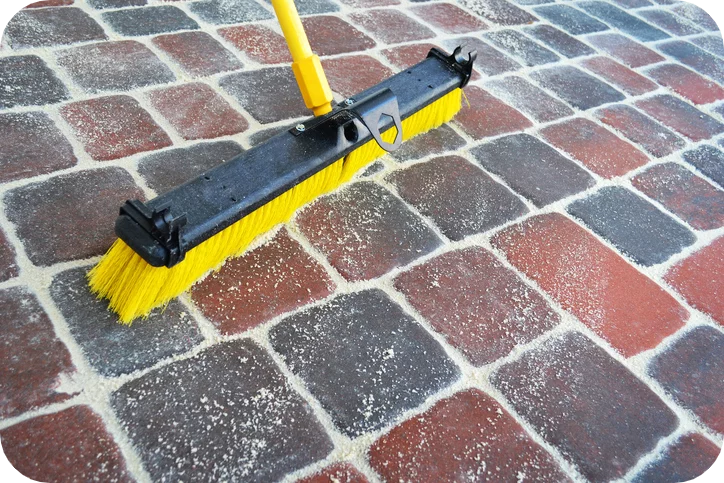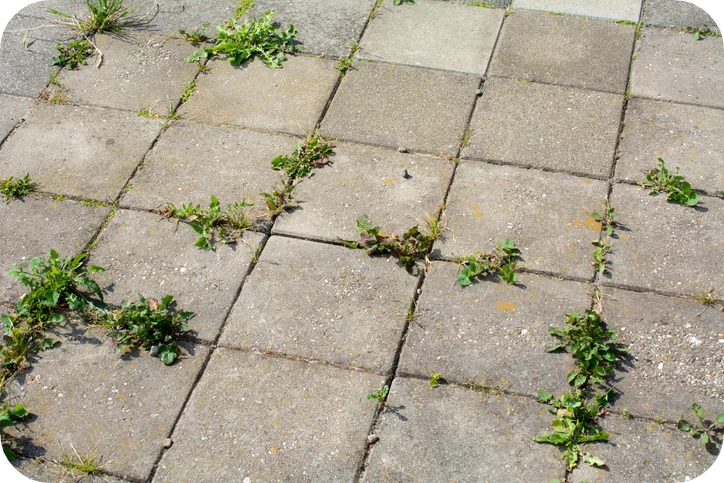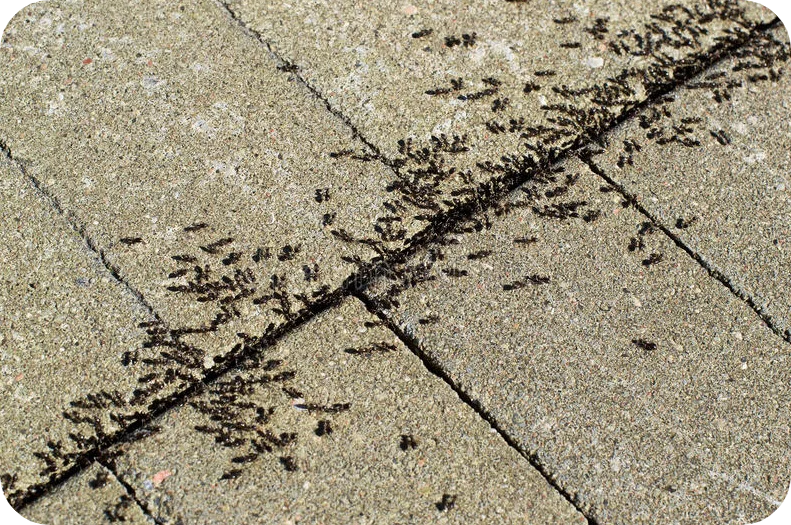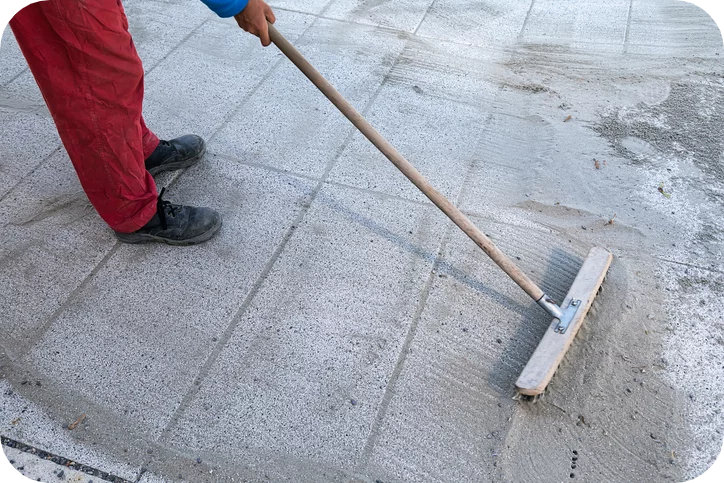An oft-forgotten – but very important product here at Lane’s Landscape Supplies – is best-level polymeric sand for pavers.
When the last of your interlock pavers or interlocking patio stones get installed, the gaps between each individual stone need to be filled with something.
That something is polymeric sand which is the best sand to use for pavers. And the reason for it lies in its composition:
- Fine quartz particles.
- Silica sand.
- Water-activated polymer to prevent the sand from blowing or washing away.
- Colour.
Polymeric sand should be applied dry. After it gets wet, the drying process hardens the sand. That, in turn, keeps your paving slabs in place.
So, from a logistical standpoint, polymeric sand is vital towards creating a solid, beautiful interlock walkway, driveway, or patio.
But there are other benefits to polymeric sand too.
1) Fewer weeds to pull
One of the most frustrating things homeowners have to deal with is when an immaculate stone laying pattern gets overrun with annoying and pesky weeds.
That usually happens inside conventional joint sand because:
- Weed seeds get blown in and settle inside.
- Small pores in regular joint sand allow water to flow down.
- The seeds take root and begin to grow.
Should the weeds grow too big, their roots can dislodge the sand and paving stones.
This cannot happen with polymeric sand.
As mentioned at the top of this blog, polymeric sand dries hard after it gets wet. That solid binding prevents weed roots from taking hold and growing.
2) Fewer ants to contend with
Ever notice that certain areas (like your patio) are teeming with ants while other areas (like your driveway) are not?
That’s because ants are capable of digging tunnels and building nests inside regular joint sand.
As they burrow their way down, the sand between your interlocking pavers become displaced. Over time, enough sand will be lost, and your stones will become loose.
Not only that, but it’s not pleasant to have your hardscapes covered in ants.
Polymeric sand is much more effective at keeping ants at bay. It’s simply too hard for them to dig through it.
Eventually, they’ll give up and go somewhere else.
3) Tough and durable
There is a difference between polymeric sand vs. regular sand for pavers
Conventional sand or other types of aggregates will erode over an extended period of time. In addition, generic fill can get washed away by rain or blown away by wind.
Polymeric sand offers greater resistance to erosion because of its hardening properties.
Not only does it fill the space between you pavers, it also binds to the stone too. As a result, polymeric sand will stay in place no matter what Mother Nature throws at it.
Something else to consider are the weather conditions found in Mississauga and surrounding areas:
- Heavy rain.
- Cold snow.
- Extreme heat.
- Strong wind.
- Rough hail.
- Thick ice.
Polymeric sand is very adaptable to the changing environment. Although it dries hard, it also has a degree of flexibility too.
This allows the paving stones a bit of extra room to move without negatively impacting the appearance of your interlock.
The best polymeric sand for pavers is straightforward to apply
REMEMBER: The best polymeric sand for pavers will stick to any surface once it gets wet. Only apply it on a dry, sunny, day. Here’s how.
- Once your pavers or flagstone is in place, sweep polymeric sand into the joints.
- Tamp the pavers and sand to a consistent level.
- Sweep another layer of sand and compact the pavers again.
- Apply another round of polymeric sand as close to the paver tops as possible. Do not tamp.
- Inspect each paver to make sure no sand is sitting on top of them.
- Spray water (mist setting on your hose) over the entire paved area.
- Let sit for around 15 minutes and mist again.
- Do not step or use your paving stones for 24 hours as the polymeric sand cures.
Need polymeric sand (or anything else)? Contact us
If you’re looking for quality polymeric sand products, advice on how to lower your interlock cost, or anything else you need to finish your project, we want to help.
Contact us with your questions or comments. If you already know what you’re looking for, request a FREE quote.
We’ll get back to you ASAP with the information and answers you need.






